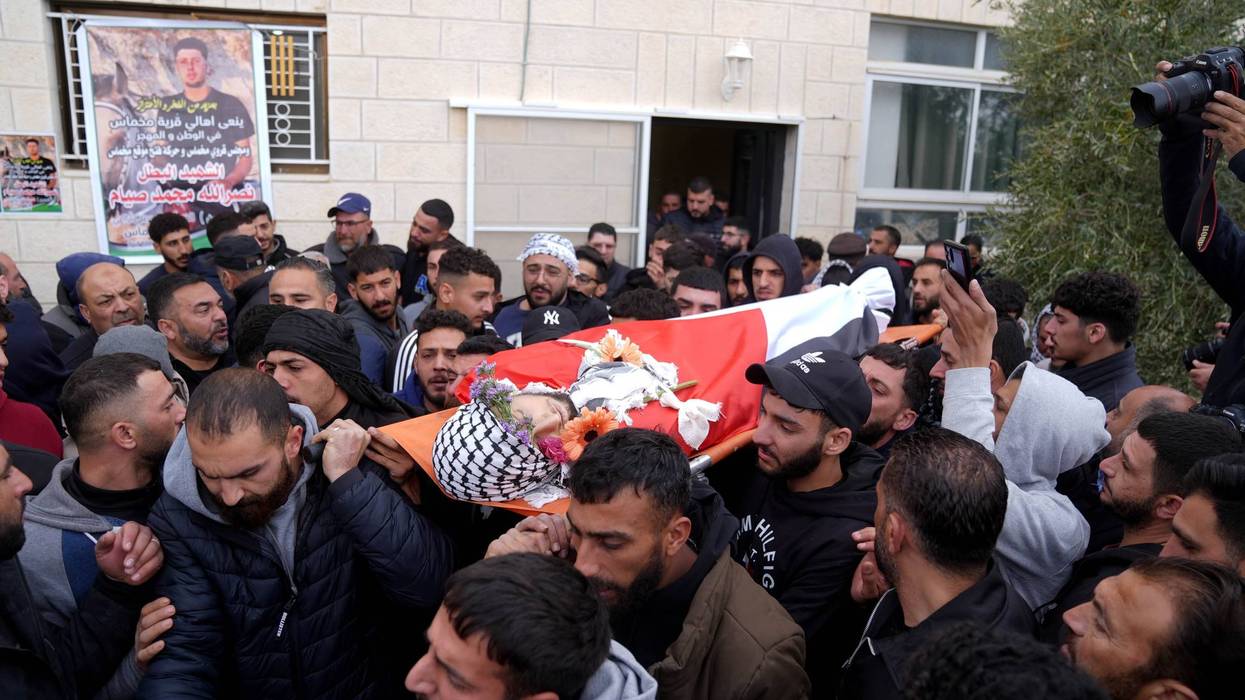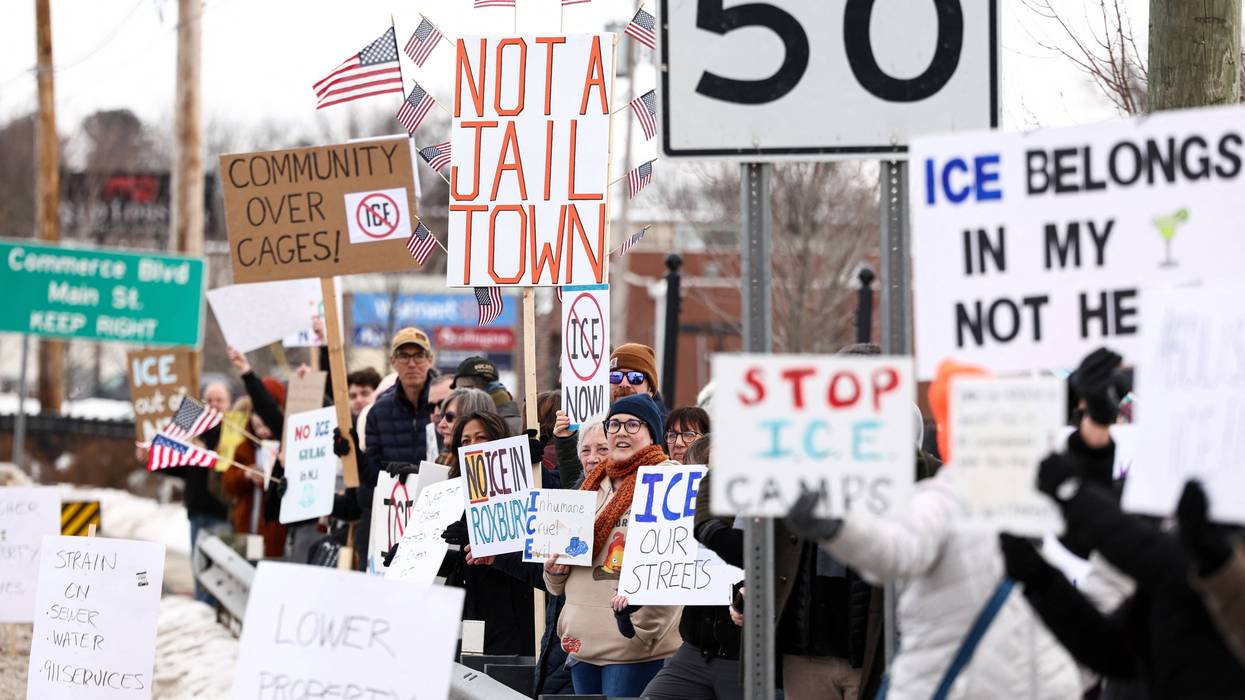Egyptian authorities should rescue migrants held for ransom and abused by human traffickers in the Sinai desert, Human Rights Watch said today. The government has neither prosecuted the traffickers nor closed down their detention sites, Human Rights Watch said.
According to media reports, in late November and early December 2010, traffickers shot or beat to death six Eritrean nationals who were among hundreds of asylum seekers and migrants held at one location near the Israeli border since late October. Two migrants held by traffickers confirmed to Human Rights Watch that traffickers are holding 105 Eritreans, including nine women, for ransom in about 10 underground rooms.
"Egyptian authorities frequently say they are cracking down on organized crime in the Sinai," said Joe Stork, deputy Middle East director at Human Rights Watch. "But the government is slow to react when human traffickers are holding hundreds of migrants for ransom."
Responding to media reports, on December 8 Egyptian security officials told the Egyptian daily Al-Shurouq that police were interrogating individuals connected to smugglers or traffickers in Sinai who may be detaining up to 300 Eritreans.
A sizable network smuggling sub-Saharan migrants through Egypt to Israel has been operating in Sinai since at least 2007. In addition to smugglers who guide people across borders unlawfully for money but who do not otherwise exploit and abuse them, there are also human traffickers operating in Sinai who abuse the migrants under their control and hold them for ransom.
Throughout 2010, Human Rights Watch has obtained numerous credible reports - including detailed statements by Eritreans apprehended by Israel near Egypt's Sinai border - of a well-established trafficking network. Traffickers regularly hold hostage hundreds of mostly Eritrean and other sub-Saharan asylum seekers and migrants, including children, in various locations for weeks or months until their relatives abroad pay thousands of dollars to secure their release.
In 30 statements that Human Rights Watch reviewed, migrants described how traffickers shackled their legs and chained three or four men or women together at a time, in some cases for as long as four months. Dozens of migrant women told medical staff in Israel that traffickers had repeatedly raped them, and both men and women said they had been burned with hot iron bars, whipped with electrical cords, beaten, and forced to do work for the traffickers while awaiting ransom payments or even after payments had been made.
Egypt's 240-kilometer border with Israel in the Sinai is a restricted military zone to which Egypt prohibits unauthorized entry. Egyptian border security forces have arrested thousands of asylum seekers and migrants in recent years and prosecuted many of them before military tribunals.
Security sources told Reuters that, in the most recent mass arrests on December 8, police arrested 83 asylum seekers and migrants - 63 Ethiopians and 20 Eritreans - 10 kilometers outside the town of Suez. The Egyptian authorities do not allow the United Nations refugee agency (UNHCR) access to asylum seekers and migrants arrested in Sinai and do not attempt to identify potential trafficking victims among them.
Since July 2007, Egyptian border guards have also shot and killed at least 85 people trying to cross into Israel - 28 of them since the beginning of 2010, including some who appear to have been seeking asylum. The vast majority were killed at the border in circumstances where smugglers were not present. Human Rights Watch is not aware of any Egyptian government investigations into these incidents.
"The authorities cannot justify shootings of migrants on the grounds that they are trying to halt smugglers or traffickers," Stork said. "Law enforcers may only use lethal force when absolutely necessary to protect lives."
Numerous migrants reported that smugglers ask for US$2,500 to $3,000 to guide them to the border with Israel. But once these migrants arrived in Sinai, they found themselves in the hands of traffickers who shackled them and demanded additional money - ranging from $500 to $10,000. They threatened to kill or otherwise harm the migrants - in several cases, to remove and sell their kidneys for a large illegal market in Egypt - if they did not pay. In dozens of cases asylum seekers and migrants said that to coerce relatives to make payments, traffickers would make them call their relatives by mobile phone and then shoot in the air or physically abuse them so the relatives would hear their screams.
Some migrants said that once their relatives paid the additional money, the traffickers handed them over to other traffickers who asked for more money. In other cases, Eritrean asylum seekers said they were kidnapped in Sudan, brought to Sinai against their will, and then forced to call their relatives to demand money in exchange for their release.
Local and international organizations working with refugees and migrants in Israel have interviewed dozens of women who said that traffickers raped them. Some women said they were repeatedly raped, often by many men, including Eritrean men forced to work with the traffickers, often at gunpoint and in some cases repeatedly for days or weeks. At times the women were raped close to where other migrants were being held hostage; at other times traffickers drove the women to an isolated area.
Physicians for Human Rights-Israel told Human Rights Watch that about 80 abortions it carried out in the first 11 months of 2010 were for asylum seekers and migrant women whom the group believes had been sexually assaulted in the Sinai. It also said that out of 1,303 gynecological examinations conducted during the same period, a "large percentage" of the cases resulted from trauma experienced in Sinai.
Asylum seekers and migrants described traffickers abusing them by burning them with hot irons, using electric shocks, whipping with "metal whips" or electric cords on the back, feet, head or entire naked body, and beating the soles of the feet with "plastic objects" and the rest of the body with sticks. Some said they were abused in one or more of these ways every two to three days, sometimes for months. One woman said she watched her husband die of his burns, after which the traffickers raped her.
Human Rights Watch has been unable to establish the locations or structures in which traffickers hold the migrants. In reports reviewed by Human Rights Watch, migrants said they were held in rooms or buildings with other migrants. An account in the Israeli newspaper Haaretz described a situation in which 50 to 70 migrants were held in "metal containers," where some died of dehydration and a child burned his hands touching the hot walls. Some migrants say they were held in "purpose-built containers" or "underground cells."
Five migrants said that they were forced to urinate in bottles and that the traffickers then poured the contents over their heads. Almost all said they were allowed to wash their bodies only once or twice during their entire captivity. Migrants reported that traffickers gave them very little food, ranging from two pieces of bread a day to porridge once every three or four days. Migrants say they were only given "salty water" or water that contained residues of fuel from petrol jerrycans to drink, sometimes only once a day.
Migrants reported that traffickers forced them to engage in manual labor for 8 to 12 hours a day - mostly building houses - for periods ranging from 10 days to several months. Some said they were forced to work for weeks, even after their relatives had paid the ransom. Some men said they were forced to work at night because the traffickers said they did not want the police or military to see them. Women, including those who had been raped, said they were forced to prepare meals and clean for the traffickers. Both men and women said the traffickers referred to them as "slaves."
The Protocol to Prevent, Suppress and Punish Trafficking in Persons, Especially Women and Children, which Egypt ratified in 2004, defines trafficking as the recruitment, transportation, transfer, harboring, or receipt of persons through "the threat or use of force or other forms of coercion...or of the giving or receiving of payments or benefits to achieve the consent of a person having control of another person, for the purpose of exploitation." Human Rights Watch said that the people in the Sinai controlling these migrants through force and threats and subjecting them to forced labor, rape, and extortion for money meet the definition of traffickers and should be brought to justice.
International law distinguishes traffickers, who depend on threats or force to exploit others, from smugglers, who take people across borders unlawfully without coercion.
According to UNHCR, about 85 percent of the migrants entering Israel through the Sinai desert in recent months have been Eritrean nationals fleeing an extremely repressive state. Most Eritreans reportedly begin their journey to Israel in refugee camps near the town of Kassala in Sudan and travel north - sometimes by boat from Port Sudan and sometimes overland - and into Sinai without passing through Egypt's capital, Cairo. Credible sources have told Human Rights Watch that some migrants die in the back of closed vehicles due to lack of water or oxygen and are simply thrown off the vehicles.
The second-largest group entering Israel is Sudanese nationals from Darfur, followed by smaller numbers of Ethiopians and other Africans. According to Israeli government figures, approximately 35,000 asylum seekers and migrants are in Israel, with about 1,100 having entered every month between August and October in 2010. Israeli officials frequently refer to them as "infiltrators."
Israel reviews very few individual asylum requests, but grants "temporary protection" to Eritrean and Sudanese nationals, which keeps them from being deported to their countries of origin. Israel's Interior Ministry recently announced it would revoke work permits of those with temporary protection.
The Israeli government also continues to implement a policy of forcibly returning to Egypt some migrants who enter Israel at the Sinai border without giving them a meaningful opportunity to lodge refugee claims, a practice Israel calls "hot returns." Israel's Supreme Court first heard Israeli rights groups' petitions against the "hot returns" procedure in 2007 but has not yet ruled on its legality. So far in 2010, the Israeli government is known to have sent back to Egypt 136 border-crossers. International refugee and human rights law prohibit refoulement, the forcible return of refugees to persecution or situations threatening their life or freedom, and of anyone to circumstances in which they face torture.
The Egyptian authorities regularly refer to organized criminal activity in Sinai involving the smuggling and trafficking of people, drugs, and weapons when justifying its prosecution before military tribunals of migrants charged with unlawful presence in Sinai, and also in explaining the scores of shooting deaths by Egyptian border security forces. In May, Egypt adopted a new anti-trafficking law and issued implementing regulations on December 6, which Human Rights Watch has yet to review. Egypt's penal code, its 2008 Child Law, and its Organ Transplant Law all criminalize trafficking.
"Egypt now has the laws but needs to take immediate and effective steps to combat trafficking and smuggling in the Sinai," Stork said. "Until it does, the terrible fate of some of the region's asylum seekers and migrants will only become more desperate."



